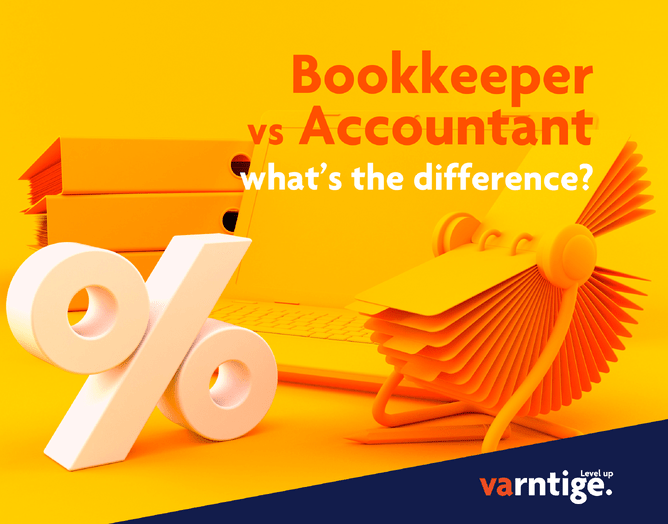If you're googling or asking this question, you're not the only one! We're often asked:
- What the difference is between an accountant and a bookkeeper?
- Why would I need or want an accountant AND a bookkeeper for my business?
There is debate about when the word 'bookkeeper' came about. But it's suggested some time in the 1400 - 1600s, so we've been around a while. At that time it was written as someone who kept account books. And to this day it really is the same thing.
Imagine we're in the 1970s: a bookkeeper would of been a busy person keeping track of all the day to day transactions for a business or organsiation. They would of kept books in which they tracked and coded transactions and filed folders worth of receipts, invoices and paperwork. Most businesses would of had a full time bookkeeper tracking and dealing with anything financial. We hate to think of the time it would of taken to code every transaction for a business in a book. Sometimes each page in the old ledger books was for a new 'Account code' or 'Chart of Accounts'. Taking into account that all transactions are double-entry (requiring a debit and credit) there was a lot of time required to keep a businesses accounts up to date.
All of these businesses would still of had accountants. The bookkeeper was there to make sure things got to the accountant tidy and ready to be checked for end of year financials. Can you imagine what would happen if someone who didn't have the right experience and knowledge tried to complete all the tasks of the bookkeeper?
Thankfully we're now in 2021, where we don't need ledger books and office space for filing and paperwork.
But the same principles exist.
Xero and the other accounting software providers have made it easier for everyone to feel like they can complete their own bookkeeping. Can you imagine the cost when it gets to the accountant if it's not done correctly? Come to think of it we could almost now be called Software-keepers?
The point of having a bookkeeper is to have someone who makes sure everything is tidy when it gets to the accountant. The bookkeeper might run your payroll, complete gst returns, invoice customers, reconcile transactions and more. You might even have a great bookkeeper but they do a range of tasks so they are called your Office Manager, Personal Assistant, Receptionist or even Wife (maybe husband)...
An accountant is there to complete your financials and file these with the IRD. As well as provide consulting on a range of high level matters, analyse data, provide recommendations based on your goals for the business or organisation and they are often the most qualified to advise on tax matters.
In general you can have accountants who complete bookkeeping tasks and bookkeepers who complete accounting tasks but there is still a difference between the two jobs.
Here at Varntige we're bookkeepers that do bookkeeping tasks. We don't complete end of year financials for clients and we don't get involved with high level consulting or succession planning.
Need a bookkeeper? Get in contact with us








